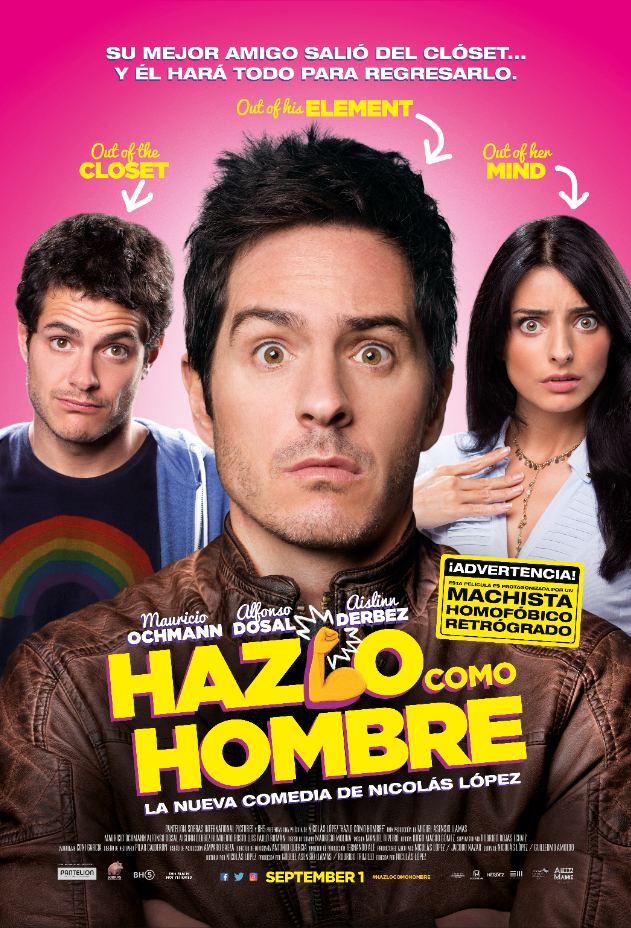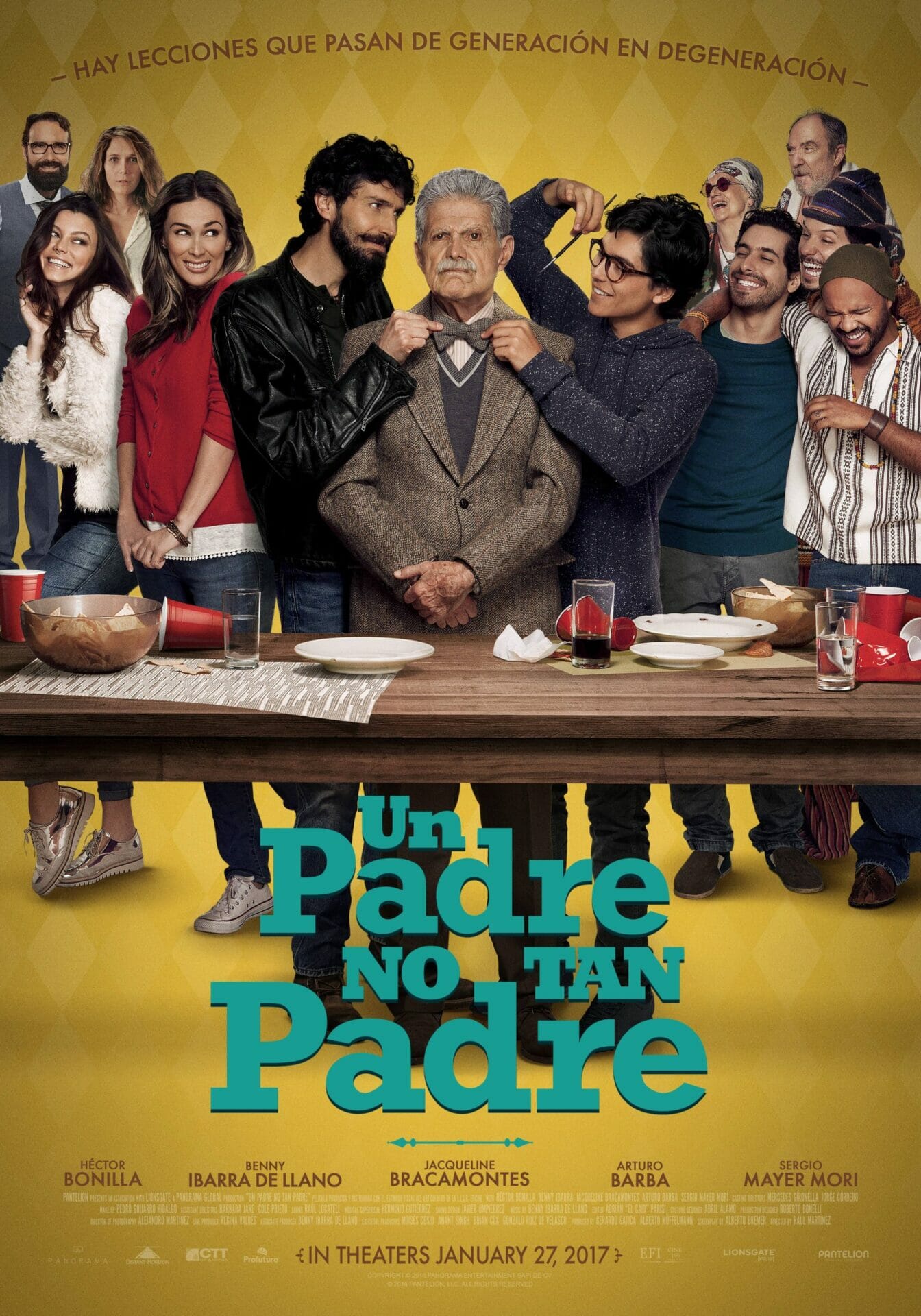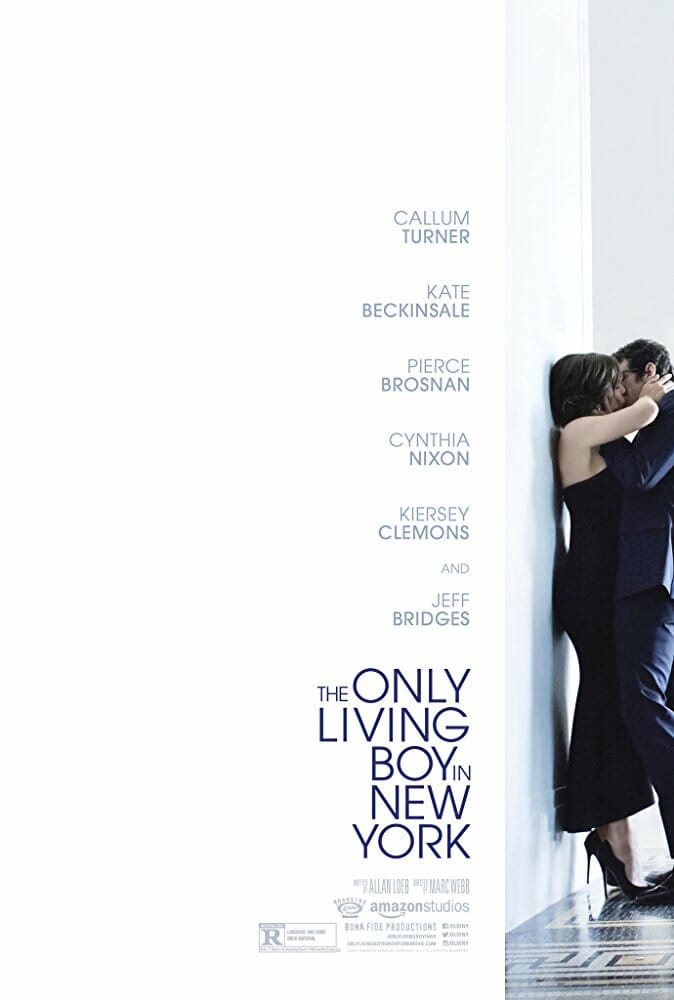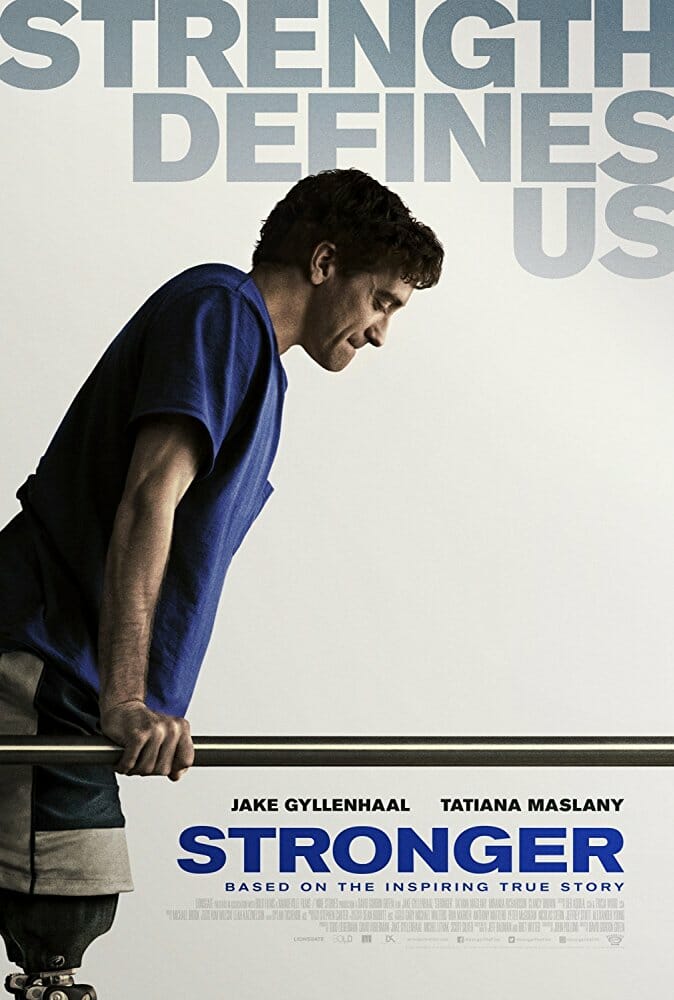Started in 1997, Lionsgate is the newest of the studios tracked in GLAAD’s report. Over two decades the studio has gone on to distribute major blockbusters, and acquired studios such as Summit Entertainment and Pantelion, which focuses on films for a Latinx audience.
Lionsgate started off with releasing the 1997 film The Pillow Book, in which Ewan McGregor plays a bisexual man. Other LGBTQ-inclusive films include, Gods and Monsters (1998), But I’m a Cheerleader! (2000), Urbania (2000), Lost and Delirious (2001), All Over the Guy (2001), Happy Endings (2005), Precious (2009), Albert Nobbs (2012), The Perks of Being a Wallflower (2012), American Ultra (2015), and Freeheld (2015).
3 Idiotas
Fails Vito Russo Test
Widest theatrical release: 349 theaters
This movie did not include any LGBTQ characters, though several times throughout the film the characters make repeated transphobic jokes about a woman who appears more masculine. These kinds of punchlines rooted in misogynistic ideas of gender expression, femininity, and beauty further a dangerous cultural narrative that a person whose gender expression does not fit neatly in the binary ideas of masculine and feminine is a joke to be laughed at, and therefore less human.
Hazlo Como Hombre
Passes Vito Russo Test
Widest theatrical release: 382 theaters
The Spanish-language film Hazlo Como Hombre or Do It Like an Hombre feels like a film decades out of date. The entire plot centers on the gay panic of lead character Raúl after his best friend, Santiago, comes out as gay and breaks off his engagement to Raúl’s sister. Raúl then spends nearly the entire film disgusted by his friend’s orientation, obsessing over anal sex and the idea that his friend might be attracted to him (including several painfully drawn out “jokes” about rape and dropping the soap in the shower), and researching harmful so-called “conversion therapy” programs. By the film’s end, Raúl finally says he accepts Santiago for who he is, but continues to use anti-gay slurs throughout.
The filmmakers likely had good intentions and hoped to make a point about bigotry existing everywhere, but acknowledging prejudice in a “humorous” way is not the same as actually challenging the idea or subverting an expectation in order to further progress. The film’s script does nothing to make Raúl a complex character, and the audience is left to suffer through over an hour of homophobic diatribes. Overall, this movie contained so much anti-gay language and sentiment played for laughs, that Raúl coming around is barely consequential.
While this film did pass the Vito Russo Test by including an LGBTQ character who was significant to the plot and had the same sort of unique personality traits as non-LGBTQ characters, it does not stop the film from being incredibly offensive.
Latinx filmgoers are consistently an audience that oversamples at the box office in comparison to the population. If studios want to reap the rewards from those audiences buying tickets, they should keep a close eye on the message they are sending to young Latinx viewers about how “hilarious” it is to be homophobic.
Power Rangers
Fails Vito Russo Test
Widest theatrical release: 3,693 theaters
The Power Rangers film began a storyline with the Yellow Ranger, Trini, questioning her sexuality. In a scene when the Rangers are trying to get to know each other better, another Ranger asks if she is having “boyfriend problems” which she replies to sarcastically. The group then pauses and continues, “girlfriend problems?” Trini responds with a speech about how she has struggled with moving so much and never has a chance to go to know anyone, saying of her family, “They believe in labels. They’d like for me to, uh, dress differently. Talk more. Have the kind of friends they want me to have. It’s just, I don’t know how to tell them what’s really going on with me. And I’ve never said any of this out loud.”
It is refreshing to see the group moving on to the girlfriend question, thus acknowledging that queer people exist in the film’s world. While it is a small thing, it is still further than many films go – even today in 2018 – when many stop at the assumption of a straight relationship. As the film does not go much further into Trini’s story than this and the press materials suggest she is currently “questioning,” we did not count her character for the purposes of this report. We hope to see her story explored further if and when Lionsgate releases a sequel.
![Lionsgate-Un-Padre-No-Tan-Padre-poster-dpi-52f | GLAAD]() Un Padre No Tan Padre
Un Padre No Tan Padre
Passes Vito Russo Test
Widest theatrical release: 312 theaters
Un Padre No Tan Padre or From Dad to Worse centers on Don Servando, an older man set in his ways who gets kicked out of his care facility for bad behavior (including homophobic remarks to his gay nurse, René) and has to move into his son’s communal housing. There, he meets a gay couple, Bill and Memo, whom he initially treats poorly. However, he later helps the two get reconcile after a rough patch when Bill continues to hide their relationship from his parents, and Servando gives a touching toast at the couple’s wedding that makes up the emotional finale of the film. There is an additional gay character, Peter, who appears for a short time as a friend of Servando’s son. Unlike Hazlo Como Hombre, Un Padre No Tan Padre showed a man’s journey to acceptance in a genuine way, where he learned the error of his ways, and actively worked toward righting his wrongs without the extensive use of anti-gay slurs and gay panic.
OPPORTUNITIES AHEAD
A new franchise coming from Lionsgate in 2019 is Peter Jackson’s adaptation of Chaos Walking, a dystopian young adult trilogy. In the novels, two men, Ben and Cillian, raise protagonist Todd (Tom Holland) in a dystopian world with no women. Author Patrick Ness (BBC America’s Class) has confirmed that their relationship is a romantic one. Both these men are listed as cast in the film adaption (Demián Bichir, Kurt Sutter); their relationship should be a part of the story when it is translated into film. Given the cast and the director, this film is likely to be a commercial success, and it must not erase its queer storylines. Though Lionsgate has yet to announce any sequels, further Power Rangers films have the opportunity to explore Trini’s sexuality and backstory.
Roadside Attractions, founded in 2003 by Howard Cohen and Eric d’Arbeloff, specializes largely in independent films. In 2007, Lionsgate bought a portion of the company. Notable LGBTQ-inclusive films previously released by the studio include I Love You Phillip Morris (2010), Albert Nobbs (2012), Dear White People, The Skeleton Twins (2014), and Hello, My Name is Doris (2016).
![roadside-attractions-the-only-living-boy-in-new-york-4e4 | GLAAD]() The Only Living Boy in New York
The Only Living Boy in New York
Widest theatrical release: 289 theaters
This drama included an incredibly brief appearance by Irwin, a closeted gay man who serves as an event date for Johanna, a woman who is being stalked by the leading man. Irwin appears for less than one minute and serves only as a plot device to set up a moment of the leading man jealously confronting Johanna, rather than anything related to being a real character with a story of his own.
![roadside-attractions-stronger-438 | GLAAD]() Stronger
Stronger
Widest theatrical release: 645 theaters
Based on a true story, Stronger follows Jeff Bauman, a Boston native who was critically injured at the finish line of the Boston Marathon during the 2013 bombings. Jeff works at Costco, and the audience learns his boss, Kevin, is gay after Jeff’s friends make homophobic remarks and Jeff reprimands them. Kevin appears later in the film to speak with Jeff about provided health coverage and offer his support to Jim’s family. The group accepts him, he even attends their barbecue later in the movie. Though he is only a small part of the film, it is refreshing to see that Kevin is developed beyond the one work scene and into a few moments of his own.


 Un Padre No Tan Padre
Un Padre No Tan Padre The Only Living Boy in New York
The Only Living Boy in New York Stronger
Stronger










